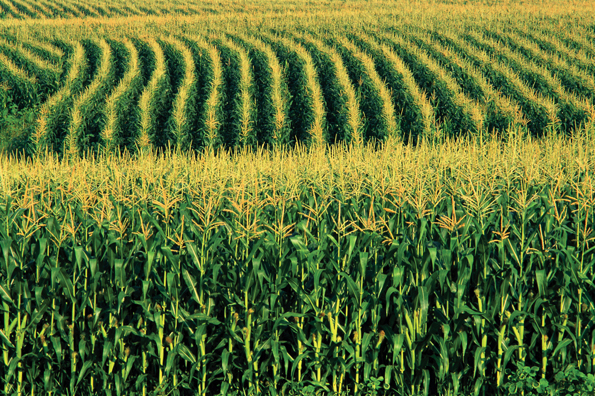Upcoming Events:
Jan. 3: Fremont Corn Expo, Breakfast 7:30 a.m., Program 8:45 a.m.-3 p.m., Christiansen Field Main Arena, Fremont
Jan. 4: Successful Farmer Series: Cover Cropping 2.0, 9-11:30 a.m., Extension Office, Lincoln
Jan. 7: Nebraska Pulse Conference, 9 a.m., Holiday Inn, Kearney
Jan. 9: York Ag Expo, Holthus Convention Center, York (Chemigation Training 9-Noon steve.melvin@unl.edu; Farm Bill/Crop Insurance/Taxes 1-4 p.m. jrees2@unl.edu)
Jan. 10: York Ag Expo, Holthus Convention Center, York (Private Pesticide Training 9-Noon jrees2@unl.edu; Residue and Nutrient Mgmt. 1-4 p.m. jrees2@unl.edu; Chad E. Colby, Speaker and Ag Technologist 4-5 p.m.)
Jan. 10: LBNRD Operator Training, 9 a.m., Community Bldg, Edgar
Jan. 10: Crop Production Clinic, North Platte
Jan. 11: Successful Farmer Series: Alternative Crops, 9-11:30 a.m., Extension Office, Lincoln
Wishing everyone a wonderful Christmas and time to celebrate this special time of year with family and friends!
With the re-registration of the restricted use pesticide (RUP) dicamba products, I’ve been receiving questions regarding the training and label requirements. Dr. Rodrigo Werle who is now a weed scientist in Wisconsin put together a really nice blog post to help understand the new buffer label requirements at: http://www.wiscweeds.info/post/dicamba-buffer-requirements/.
RUP dicamba training can be obtained at the Crop Production Clinics (CPC), Nebraska Crop Management Conference (NCMC), Approved Industry Trainings, Extension Trainings, and via an online course. It is not built into our private applicator pesticide training, but many of us are offering it as an option on the same day and at the same location as pesticide training. There is no charge for dicamba training (unless you’re taking it at a program that requires a fee such as CPC and NCMC). You have to be a certified pesticide applicator to apply RUP dicamba this year and you need to provide your applicator number for dicamba training.
All information from the Nebraska Department of Ag including labels, best management practices, list of trainings and list of certified applicators who’ve taken the training, can be found at: http://www.nda.nebraska.gov/pesticide/dicamba.html. The online dicamba training (available after January 1, 2019) and additional informational resources from UNL can be found at: https://pested.unl.edu/dicamba.
I’ve been thinking about these dicamba buffer requirements in addition to how heavy palmer and other weeds often are on our endrows. Research shows that palmer is sensitive to red and natural light in triggering germination. Research and observation have shown incorporation of a small grain helps with reducing palmer amaranth germination early in the season, and if taken to grain, delays germination till after harvest of the small grain. Chris Proctor, Extension Educator, and I were talking and wondered if we should consider incorporating a small grain into our endrows (especially in soybean fields) or possibly even perennial grasses for situations that would be a better fit? I’m unsure how practical this is for every farmer or every situation, but in floating the idea with farmers as I’ve presented about palmer, it seems like it may work for some. We’ve seen from previous years the challenges with weather in being able to spray dicamba and herbicides in general. With the buffer requirements and the fact that endrows often have heavier weed pressure, I just wonder if we need to start looking at treating endrows differently. Would like to hear your thoughts on this and/or other ideas!
We also know from research at the University in Arkansas in greenhouse studies that palmer only took three generations to become resistant to dicamba. Considering three generations, it’s like saying dicamba is applied to soybean one year, corn the next year, and soybean again the following year with year 4 showing resistance developing. Dicamba is a great tool in our toolbox and palmer is perhaps our most difficult weed to control right now. Consider choosing which crops you will use dicamba on this next growing season and think through the next few years’ crop rotation and herbicide program on your different farms to help with selection pressure and resistance management.
Area Extension Dicamba Trainings:
- Jan. 21: York County, 5 p.m., 4-H Bldg, York
- Jan. 22: Thayer County, 5:30 p.m., Community Center, Davenport
- Feb. 5: Merrick County, 10:00 a.m., Fairgrounds, Central City
- Feb. 6: Hamilton County, 10:00 a.m., Fairgrounds, Aurora
- Feb. 7: Seward County, 11:30 a.m., Civic Center, Seward
- Feb. 12: Kearney County, 12:00 p.m., Fairgrounds, Minden
- Feb. 14: Webster County, 12:00 p.m., Community Center, Blue Hill
- Feb. 19: Franklin County, 1:30 p.m., Fairgrounds, Franklin
- Feb. 20: Clay County, 2:00 p.m., Fairgrounds, Clay Center
- Feb. 28: Nuckolls County, 10:00 a.m., Community Center, Nelson
- Mar. 5: Hamilton County, 10:00 a.m., Fairgrounds Aurora,
- Mar. 11: Adams County, 4:00 p.m., Fairgrounds, Hastings
- Mar. 12: Jefferson County, 10:00 a.m., Fairgrounds, Fairbury
- Mar. 13: Gage County, 10:00 a.m., Extension Office, Beatrice
- Mar. 14: Saline County, 10:00 a.m., Extension Office, Wilber

































